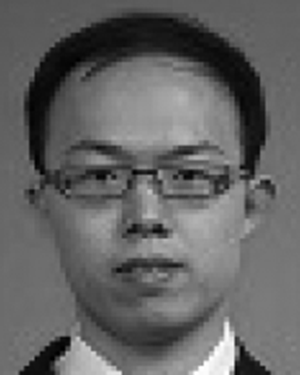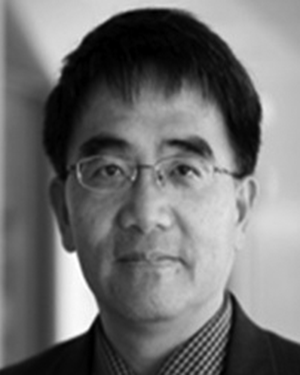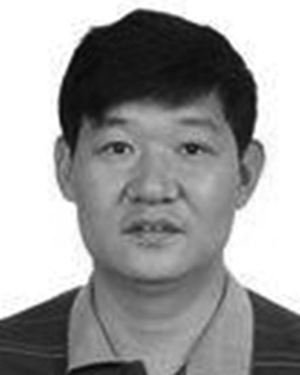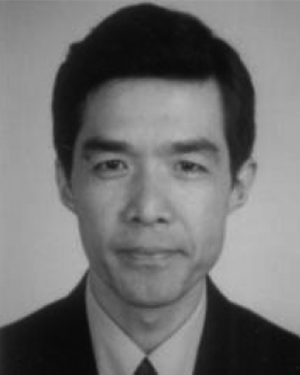Abstract:
Electric buses face problems of short driving range, slow charging, and high cost. To improve the performance of electric buses, a novel hybrid battery system (HBS) confi...Show MoreMetadata
Abstract:
Electric buses face problems of short driving range, slow charging, and high cost. To improve the performance of electric buses, a novel hybrid battery system (HBS) configuration consisting of lithium iron phosphate (LFP) batteries and Li-ion batteries with a Li4Ti5O12 (LTO) material anode is proposed. The configuration and control of the HBS are first studied, and a LFP battery degradation model is built. Simulation result indicates that the HBS can help us to mitigate LFP battery degradation. Then, the HBS is optimally sized for electric buses to achieve minimum cost. The daily bus operation and charging patterns as well as LFP battery degradation are considered. The optimal HBS has 10.7% and 19.3% lower total cost than the single LTO-battery and LFP-battery configurations, and has higher range flexibility than the single LTO-battery configuration.
Published in: IEEE Transactions on Vehicular Technology ( Volume: 67, Issue: 2, February 2018)

State Key Laboratory of Automotive Safety and Energy, Tsinghua University, Beijing, China
Xiaobin Zhang received the B.Eng. degree in automotive engineering
from Tsinghua University, Beijing, China, in 2012, where he also received the Ph.D. degree in automotive engineering
from the State Key Laboratory of Automotive Safety and Energy in 2017. His research interests include modeling and
optimal control of electric powertrains.
Xiaobin Zhang received the B.Eng. degree in automotive engineering
from Tsinghua University, Beijing, China, in 2012, where he also received the Ph.D. degree in automotive engineering
from the State Key Laboratory of Automotive Safety and Energy in 2017. His research interests include modeling and
optimal control of electric powertrains.View more

Department of Mechanical Engineering, University of Michigan, Ann Arbor, MI, USA
Huei Peng received the Ph.D. degree in mechanical engineering from
the University of California, Berkeley, CA, USA, in 1992. He is currently a Professor in the Department of Mechanical
Engineering, University of Michigan, Ann Arbor, MI, USA. His research interests include adaptive control and optimal
control, with emphasis on their applications to vehicular and transportation systems. His current research interests
in...Show More
Huei Peng received the Ph.D. degree in mechanical engineering from
the University of California, Berkeley, CA, USA, in 1992. He is currently a Professor in the Department of Mechanical
Engineering, University of Michigan, Ann Arbor, MI, USA. His research interests include adaptive control and optimal
control, with emphasis on their applications to vehicular and transportation systems. His current research interests
in...View more

State Key Laboratory of Automotive Safety and Energy, Tsinghua University, Beijing, China
Hewu Wang received the Ph.D. degree from Xi'an Jiaotong
University, Xi'an, China, in 2000. He is currently an Associate Researcher with the State Key Laboratory of
Automotive Safety and Energy, Tsinghua University, Beijing, China. His research interests include life cycle
assessment of automobile energy and driving and charging patterns of electric vehicles.
Hewu Wang received the Ph.D. degree from Xi'an Jiaotong
University, Xi'an, China, in 2000. He is currently an Associate Researcher with the State Key Laboratory of
Automotive Safety and Energy, Tsinghua University, Beijing, China. His research interests include life cycle
assessment of automobile energy and driving and charging patterns of electric vehicles.View more

State Key Laboratory of Automotive Safety and Energy, Tsinghua University, Beijing, China
Minggao Ouyang received the Ph.D. degree from Technical University of
Denmark, Kgs. Lyngby, Denmark, in 1993. He is the Changjiang Scholar Professor involved by the Ministry of Education
and the Director of the State Key Laboratory of Automotive Safety and Energy, Tsinghua University, Beijing, China. His
research interests include battery safety and thermal control and energy-storage systems for electric and hybrid
ve...Show More
Minggao Ouyang received the Ph.D. degree from Technical University of
Denmark, Kgs. Lyngby, Denmark, in 1993. He is the Changjiang Scholar Professor involved by the Ministry of Education
and the Director of the State Key Laboratory of Automotive Safety and Energy, Tsinghua University, Beijing, China. His
research interests include battery safety and thermal control and energy-storage systems for electric and hybrid
ve...View more

State Key Laboratory of Automotive Safety and Energy, Tsinghua University, Beijing, China
Xiaobin Zhang received the B.Eng. degree in automotive engineering
from Tsinghua University, Beijing, China, in 2012, where he also received the Ph.D. degree in automotive engineering
from the State Key Laboratory of Automotive Safety and Energy in 2017. His research interests include modeling and
optimal control of electric powertrains.
Xiaobin Zhang received the B.Eng. degree in automotive engineering
from Tsinghua University, Beijing, China, in 2012, where he also received the Ph.D. degree in automotive engineering
from the State Key Laboratory of Automotive Safety and Energy in 2017. His research interests include modeling and
optimal control of electric powertrains.View more

Department of Mechanical Engineering, University of Michigan, Ann Arbor, MI, USA
Huei Peng received the Ph.D. degree in mechanical engineering from
the University of California, Berkeley, CA, USA, in 1992. He is currently a Professor in the Department of Mechanical
Engineering, University of Michigan, Ann Arbor, MI, USA. His research interests include adaptive control and optimal
control, with emphasis on their applications to vehicular and transportation systems. His current research interests
include design and control of electrified vehicles, and connected/automated vehicles.
Huei Peng received the Ph.D. degree in mechanical engineering from
the University of California, Berkeley, CA, USA, in 1992. He is currently a Professor in the Department of Mechanical
Engineering, University of Michigan, Ann Arbor, MI, USA. His research interests include adaptive control and optimal
control, with emphasis on their applications to vehicular and transportation systems. His current research interests
include design and control of electrified vehicles, and connected/automated vehicles.View more

State Key Laboratory of Automotive Safety and Energy, Tsinghua University, Beijing, China
Hewu Wang received the Ph.D. degree from Xi'an Jiaotong
University, Xi'an, China, in 2000. He is currently an Associate Researcher with the State Key Laboratory of
Automotive Safety and Energy, Tsinghua University, Beijing, China. His research interests include life cycle
assessment of automobile energy and driving and charging patterns of electric vehicles.
Hewu Wang received the Ph.D. degree from Xi'an Jiaotong
University, Xi'an, China, in 2000. He is currently an Associate Researcher with the State Key Laboratory of
Automotive Safety and Energy, Tsinghua University, Beijing, China. His research interests include life cycle
assessment of automobile energy and driving and charging patterns of electric vehicles.View more

State Key Laboratory of Automotive Safety and Energy, Tsinghua University, Beijing, China
Minggao Ouyang received the Ph.D. degree from Technical University of
Denmark, Kgs. Lyngby, Denmark, in 1993. He is the Changjiang Scholar Professor involved by the Ministry of Education
and the Director of the State Key Laboratory of Automotive Safety and Energy, Tsinghua University, Beijing, China. His
research interests include battery safety and thermal control and energy-storage systems for electric and hybrid
vehicles.
Minggao Ouyang received the Ph.D. degree from Technical University of
Denmark, Kgs. Lyngby, Denmark, in 1993. He is the Changjiang Scholar Professor involved by the Ministry of Education
and the Director of the State Key Laboratory of Automotive Safety and Energy, Tsinghua University, Beijing, China. His
research interests include battery safety and thermal control and energy-storage systems for electric and hybrid
vehicles.View more


